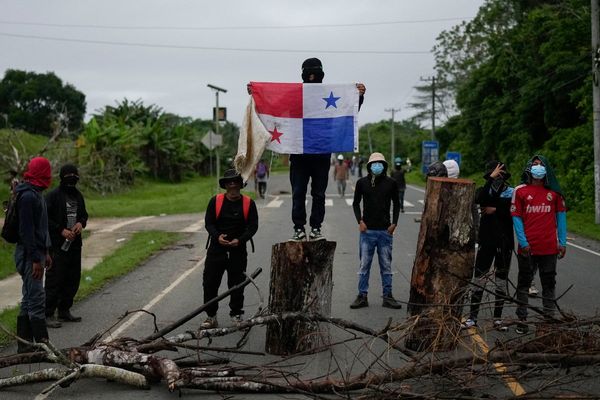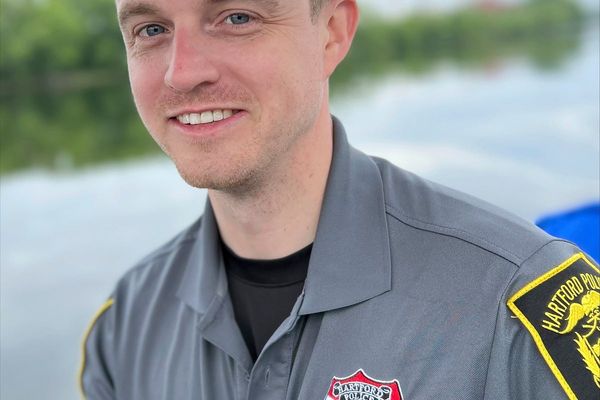MIAMI _ Esteban Santiago, the man who confessed to fatally shooting five people and wounding six at Fort Lauderdale's international airport, has agreed to plead guilty and spend the rest of his life in federal prison.
Prosecutors have accepted his offer and are not seeking the death penalty. But the judge wants Santiago to first undergo a mental health evaluation to make sure he knows what he is doing and is legally competent to plead guilty.
The decision should take a very expensive and potentially long and emotional trial _ followed by years of appeals _ off the table.
Santiago's documented history of severe mental illness, the fact that he went to the FBI and asked for help two months before committing the mass shooting, his willingness to plead guilty and his military service in the Iraq War were likely among the top factors that affected the decision, experts said.
"Mr. Santiago is remorseful and will plead guilty," Assistant Federal Public Defender Eric Cohen told the judge.
Santiago, 28, had pleaded not guilty to a 22-count indictment in the Jan. 6, 2017 mass shooting at Fort Lauderdale-Hollywood International Airport. Ten of those charges carry a maximum punishment of death or life in federal prison.
Shackled and dressed in beige scrubs, Santiago wore his hair in a short ponytail and spoke only briefly in court. His leg visibly trembled under the defense table.
"Yes, Your Honor," Santiago said when the judge asked if he'd had enough time to discuss everything with his attorneys, Cohen and Chief Assistant Federal Public Defender Hector Dopico. He said he had no questions.
His change-of-plea hearing is expected to be scheduled in the next several weeks in federal court in Miami, after a mental health expert examines Santiago and issues a confidential report.
Both sides are due back in court May 23 for a competency hearing with U.S. District Beth Bloom. If the judge is satisfied that Santiago is mentally competent, she would then allow him to plead guilty.
"That is the court's utmost concern," Bloom said of Santiago's competency and ability to understand the rights he is giving up.
Santiago is locked up in the Federal Detention Center in downtown Miami and has been prescribed medication to treat his diagnosis of schizophrenia.
He was briefly hospitalized for psychiatric care in Alaska in November 2016, two months before the shooting. He had driven to the FBI office in Anchorage, asked for help and told agents he was hearing voices and thought the government was controlling his mind.
After Santiago surrendered at the airport, FBI agents said he confessed and told them he was "programmed" to act under government mind control. Later in the interview, he said he was inspired by the Islamic State extremist group, but authorities said no terrorism links have been found.
Federal prosecutors rarely seek a death sentence and it is even rarer for jurors to endorse their requests.
Only 61 people are on federal death row, according to statistics compiled by the Death Penalty Information Center. Since Congress reinstated the death penalty in 1988, only three prisoners have been executed � in 2001 and 2003.
Santiago grew up in Puerto Rico and most recently lived in Anchorage, Alaska.
He is locked up in the Federal Detention Center in downtown Miami and has been prescribed medication to treat schizophrenia. His trial had been scheduled for June in federal court in Miami.
Under the terms of the plea agreement, which is still being finalized, Santiago would give up all of rights to appeal the criminal conviction and his punishment, prosecutors said.
In the federal system, the process of deciding whether to seek execution or life behind bars takes much longer than in Florida's state system. The final decision was made by Attorney General Jeff Sessions.
The process included an initial, secret recommendation by the U.S. Attorney for the Southern District of Florida, Benjamin Greenberg, made after he consulted with a local committee.
That recommendation was then reviewed by a panel of experts in the U.S. Department of Justice in Washington, D.C., which also issued a secret recommendation.
Family members of the victims were consulted about their wishes and were permitted to provide their input during the decision-making process, prosecutors Rick Del Toro and Lawrence LaVecchio told the judge.
In those rare cases when federal prosecutors seek the death penalty, a jury must first decide if the defendant is guilty. If they find the person guilty, the same jurors then decide on the appropriate punishment in a process that is similar to a second trial.
In federal cases, the jury's decision is binding on the sentencing judge. A 12-0 verdict in favor of death is required.
Judges and jurors in Florida have sentenced only two men to federal death row. They were prosecuted together in federal court in West Palm Beach.
Drug runners Daniel Troya, 35, and Ricardo Sanchez Jr., 34, were each sentenced to two death sentences and two life terms in 2009 for slaughtering a Greenacres family along Florida's Turnpike in 2006. They are imprisoned in Terre Haute, Ind., and are appealing their sentences.
The life terms were for fatally shooting the parents and the death sentences were for murdering their sons, ages 3 and 4. Investigators said the murders were ordered to settle a drug debt with the father.







